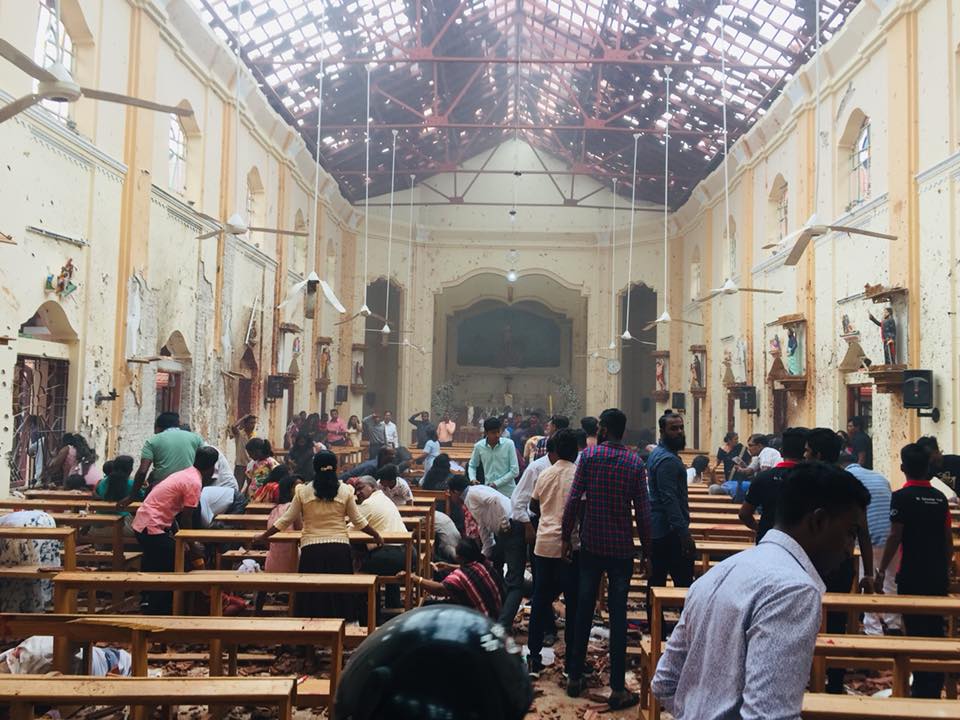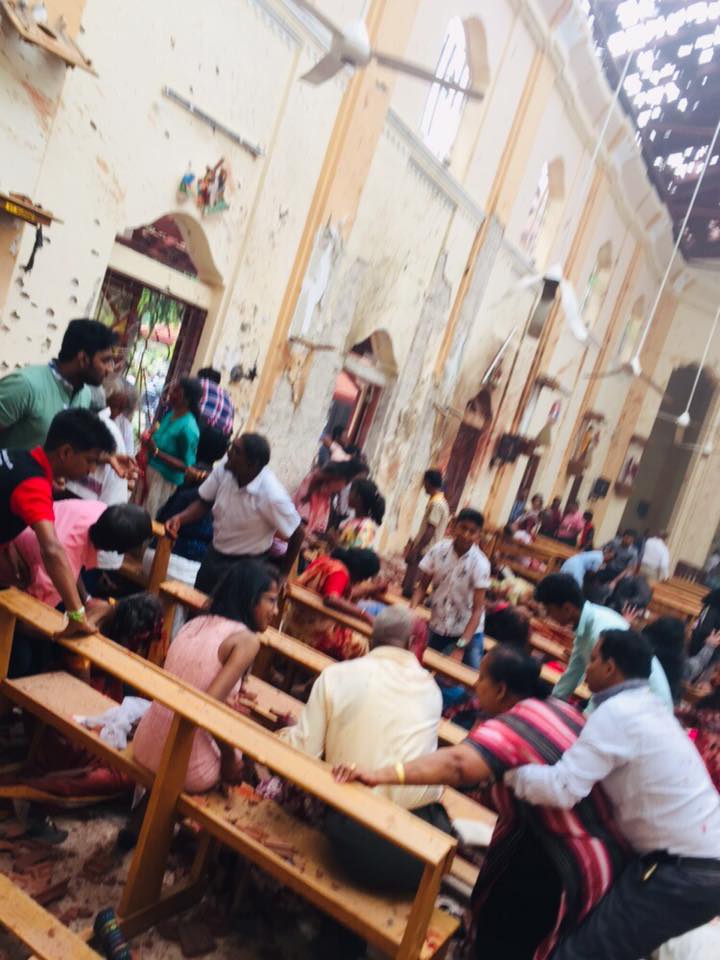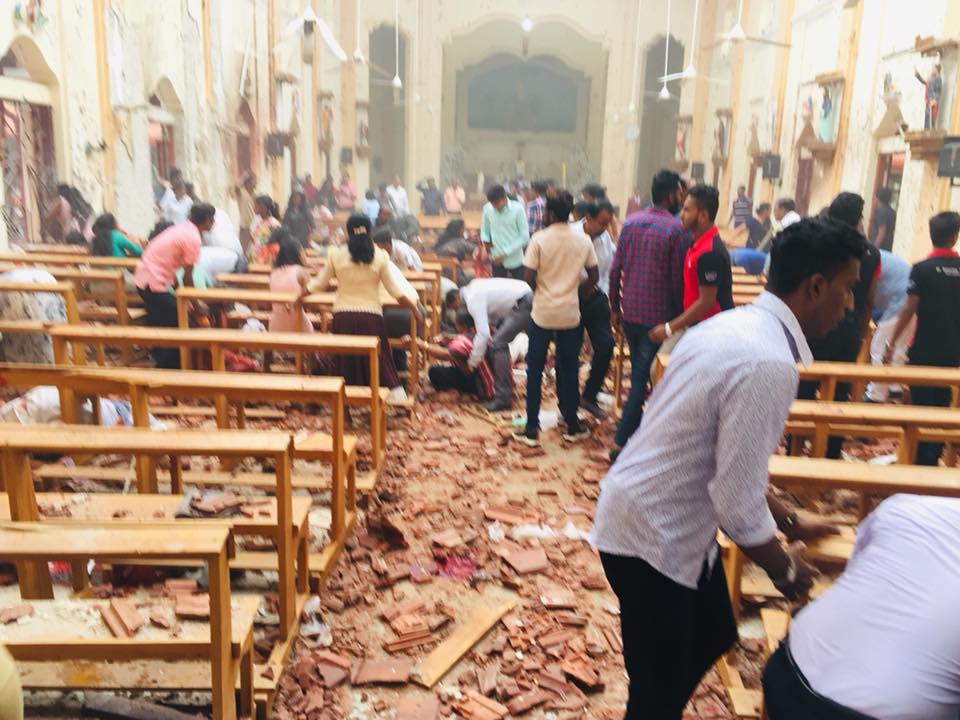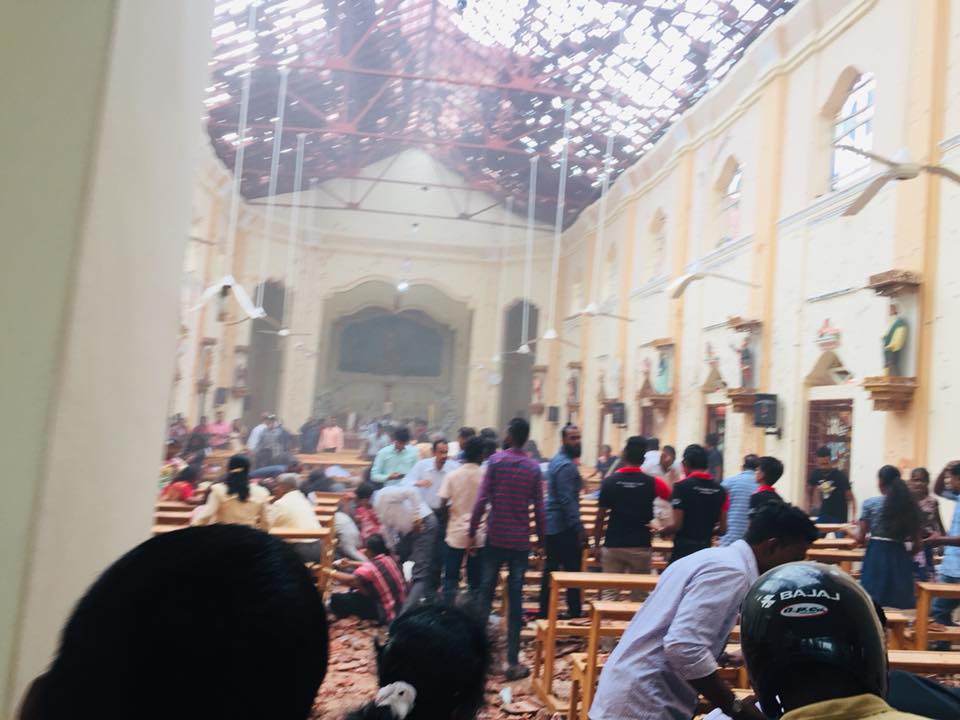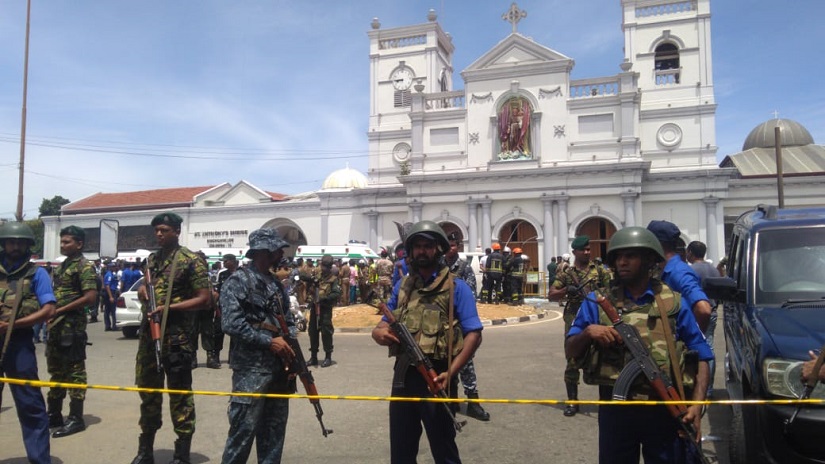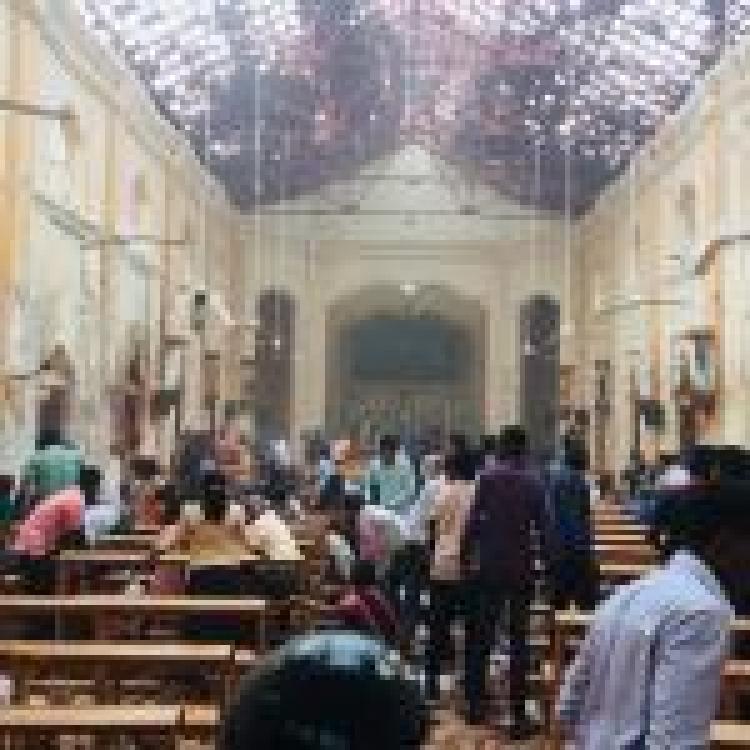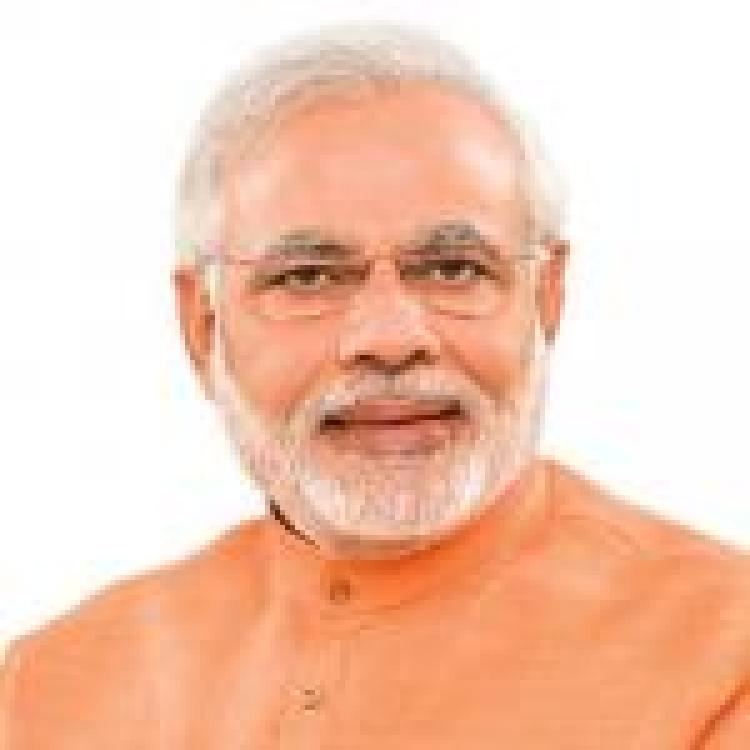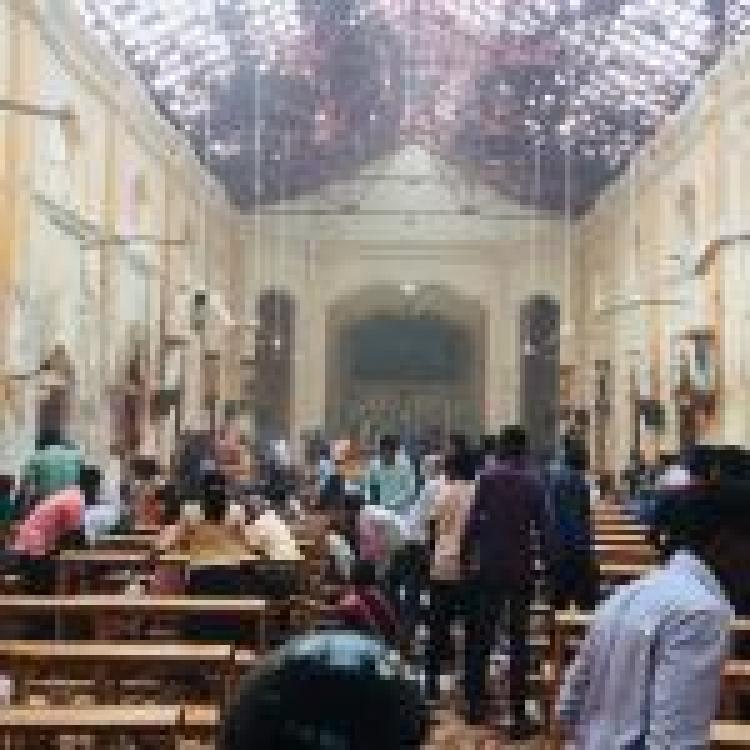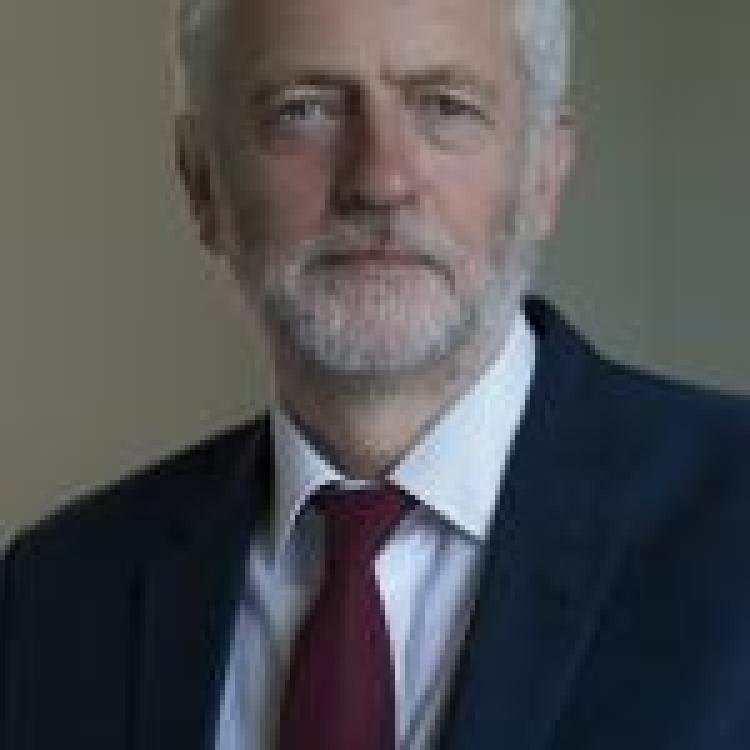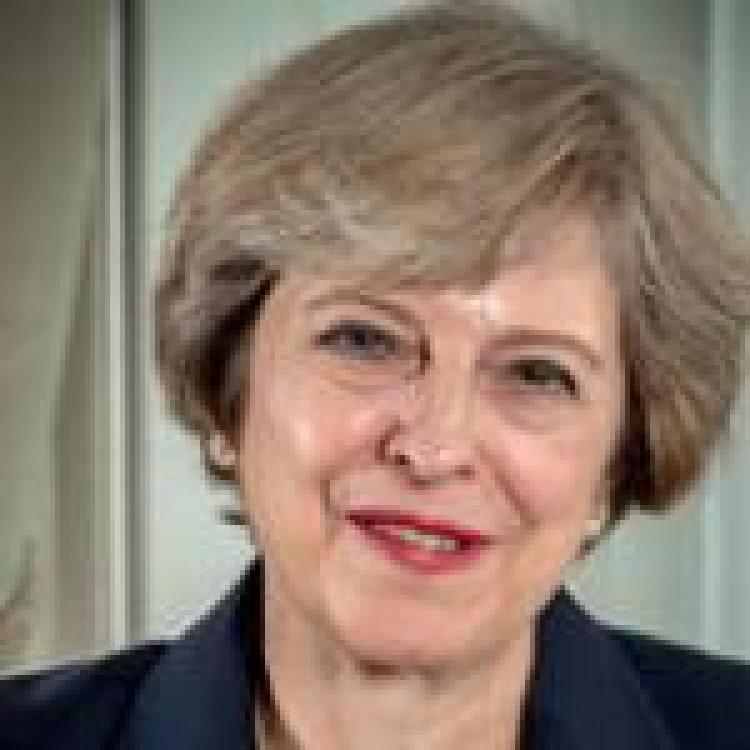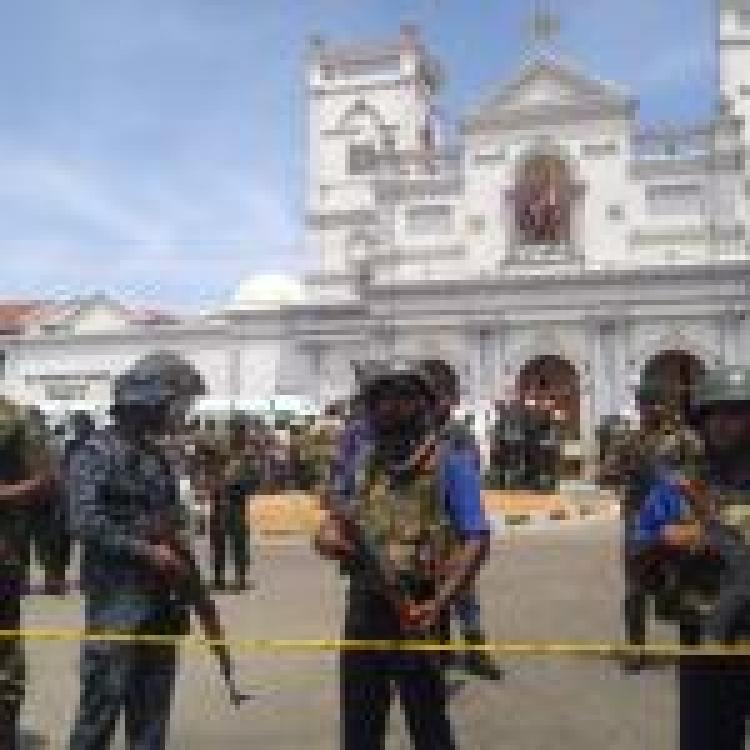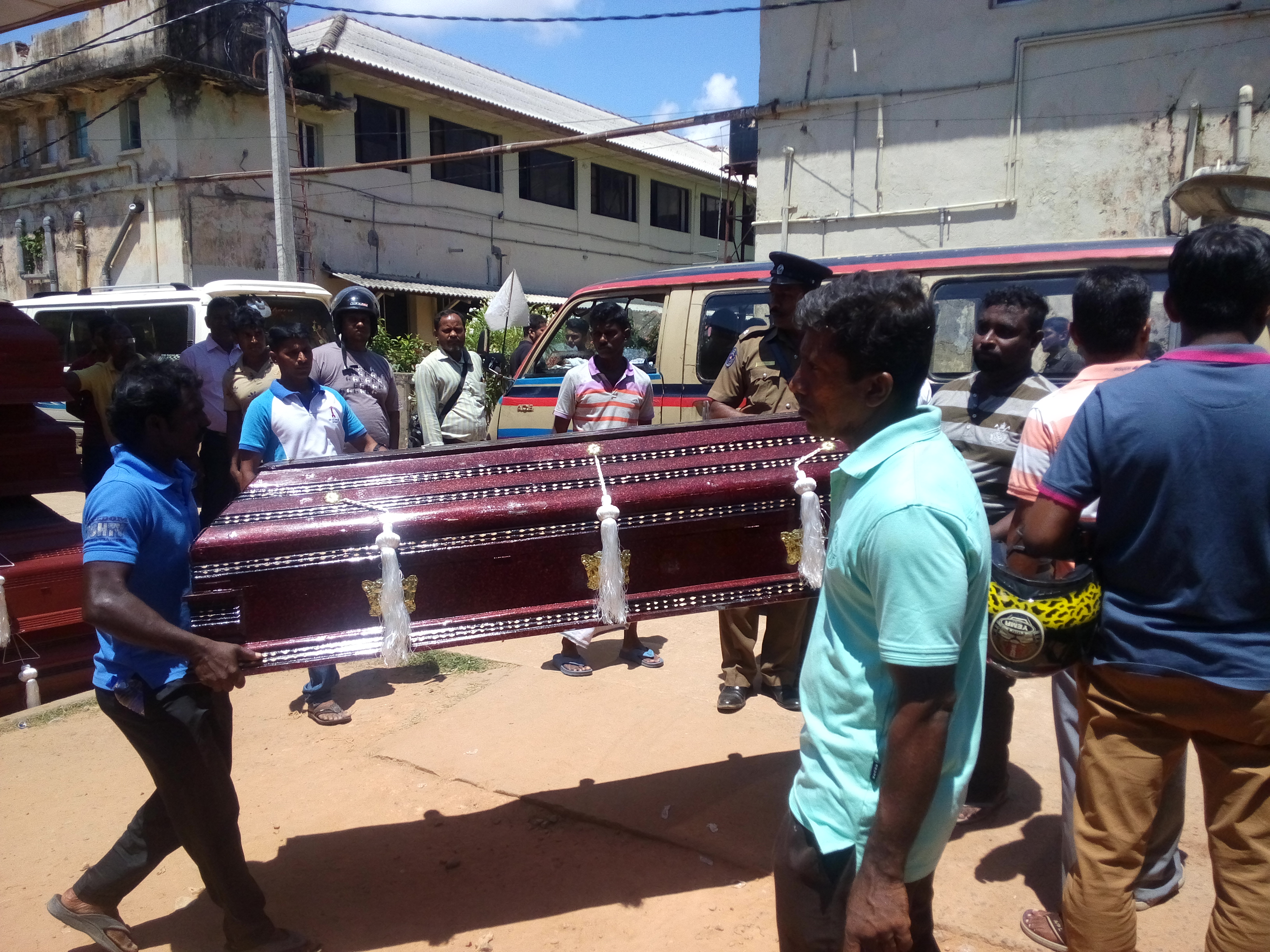
Photograph: A casket of one of the victims from Sunday's bombing in Batticaloa
Updated 20:00 GMT, April 24
The death toll of the bombings rose to 359, as Sri Lanka's prime minister Ranil Wickremesinghe said there were still suspects with explosives at large. Sri Lanka's parliament implemented emergency regulations without a vote, which will give the President and security forces further sweeping powers.
The spokesperson for the Tamil National Alliance MA Sumanithrian, urged for unity and restraint, whilst calling on the governor of the Eastern Province to be investigated for his links with the National Thowheed Jamaath, a lesser known jihadist group that has been blamed by Sri Lankan authorities for the Easter Sunday bombings that have killed over 300 people. Although the exact role of Isis in the attacks is yet to be established, it is thought that Isis reoriented the local attackers away from bombs directed at destroying major Buddhist monuments to focus on attacks that more closely associated with its global jihadist ideology, reports the Guardian.
Accusations of the Sri lankan government’s failure to act on international intel further solidified, as the Guardian reported international sources confirming that intel had been provided to Sri Lanka in advance of the attacks. By the end of the day a total of 80 suspects had already been detained in links to the attacks.
Updated 19:00 GMT, April 23
Islamic State claimed responsibility for the Easter Sunday attacks in a statement made on Tuesday, as the death toll of the bombings rose to 321.
In a statement released by the group’s Amaq news agency, the Islamic State identified the seven suicide bombers by their noms de guerre, specifying which of them had gone to three of the attacked churches, reports the New York Times.
Speaking at a press conference on Tuesday, Sri Lanka’s prime minster Ranil Wickremesinghe said that investigators believe that some attackers have travelled abroad to Syria and come back.
Wickremesinghe further added that people need not always go to Syria, stating, “You can meet people in any part. You can meet them in London. You needn’t go to the region.”
Sri Lanka's government came under heavy scrutiny as parliament discussed the security lapses that lead to the terror attacks. Former Sri Lankan president Rajapaksa accused the government of weakening Sri Lanka's security sector and called for resignations
As parliament attempted to make sense of the situation, families of the victims started burying their loved ones with ceremenies taking place in Colombo and Batticaloa.
Read more: Rajapaksa lambasts current government for security lapses, calls for resignations
Updated 20:30 GMT, April 22
The death toll from a series of bomb attacks has soared to 290 with at least 35 foreigners among the fatalities. Sri Lankan police said 24 people had been arrested in connection with the blasts.
A state of emergency is to be declared with 'anti terrorism clauses' effective from midnight Monday.
An explosion was reported on Monday near St Anthony's Church in Colombo, as a further explosive device found by security personnel was defused.
Sri Lanka’s prime minister Ranil Wickremesinghe reportedly missed out on foreign intelligence warnings of imminent attacks due to an ongoing feud with Sri Lankan president Maithripala Sirisena.
The news comes following a briefing by Health Minster and cabinet spokesperson Rajith Senaratne, who said the premier had been kept out of intelligence briefings, and not been told of a report on April 11 that outlined intelligence warnings of attacks on churches by a domestic militant group called the National Thawheed Jama’ut.
Sri Lanka has accepted the help of international agencies, including the FBI and INTERPOL, to assist with ongoing investigations.
A senior Asian counter-terrorism official, who declined to be identified, told Reuters news agency the attack was likely carried out by a group with "significant operational capability and skilled commanders".
Updated 15:45GMT, April 21
Over 200 people are confirmed to have been killed in a series of bomb attacks in Batticaloa and Colombo on Easter Sunday, targeting churches and luxury hotels.
Eight blasts were reported in total, attacking churches in Colombo and Batticaloa. Hotels hit by explosions include the Shangri-La, Kingsbury and Cinnamon Grand hotels and one other, all in Colombo.
Amongst the dead are 35 foreigners, according to the latest reports. The Sri Lankan ministry of foreign affairs listed said the nationalities of the dead include three from India, one from Portugal, two from Turkey, three from the UK and two holding US and UK nationality.
Sri Lankan authorities claim most of the blasts were caused by suicide bombers. No organisation has claimed responsibility for the attacks, however Sri Lanka says it has arrested at least 7 people so far. The Ministry of Defence also stated the attacks coordinated by a single group. At least 3 Sri Lankan police officers were also killed in Dematagoda, the site of the 8th explosion, as they raided a block of flats in an alleged pursuit of the attackers.
An island wide curfew has been declared by the Ministry of Defence, in place immediately. The Sri Lankan military has reportedly stepped up its presence across the island and in key institutions, including Colombo’s international airport. Social media websites and communication platforms such as WhatsApp have also been temporarily banned by the government across the island.
Read more: Sri Lanka MoD declares island-wide curfew following blasts
World leaders have spoken out to condemn the attack, from US President Donald Trump to Indian Prime Minister Narendra Modi and Pope Francis.
Read more: World leaders condemn "horrific" Easter Sunday bombing
Sri Lanka's Minister of Economic Reforms Harsha De Silva has confirmed, in a tweet shortly after visiting the hotels, that there were "many casualties including foreigners". "Horrible scenes," he tweeted. "I saw many body parts strewn all over. Emergency crews are at all locations in full force."
Addressing the nation on Sunday evening, after a string of suicide bombings across the island Sri Lanka’s Prime Minister Ranil Wickremesinghe said that there appeared to have been prior warnings to the Easter Sunday bombings that had not been adequately looked into.
Read more: Sri Lanka's Prime Minister says prior warnings to attacks had not been looked into
Photographs of disorientated crowds have emerged from the explosions at in Kochchikade St Anthony’s church in Colombo and the Zion Church in Batticaloa. Tamil Guardian's correspondent in Batticaloa said that young children were amongst the casualties.
Zion Church, Batticaloa
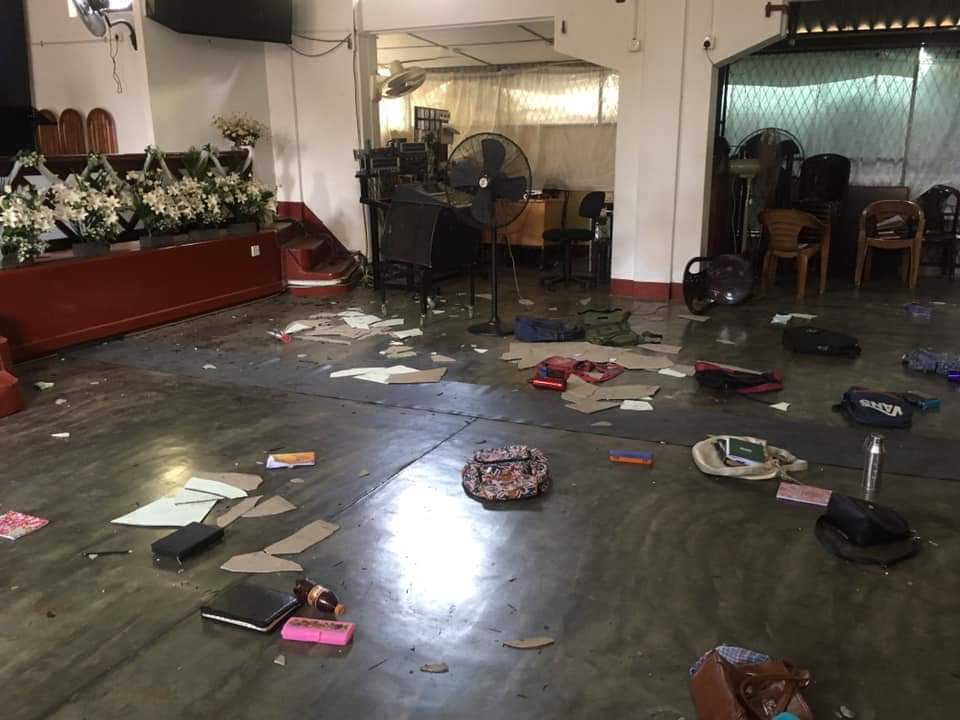
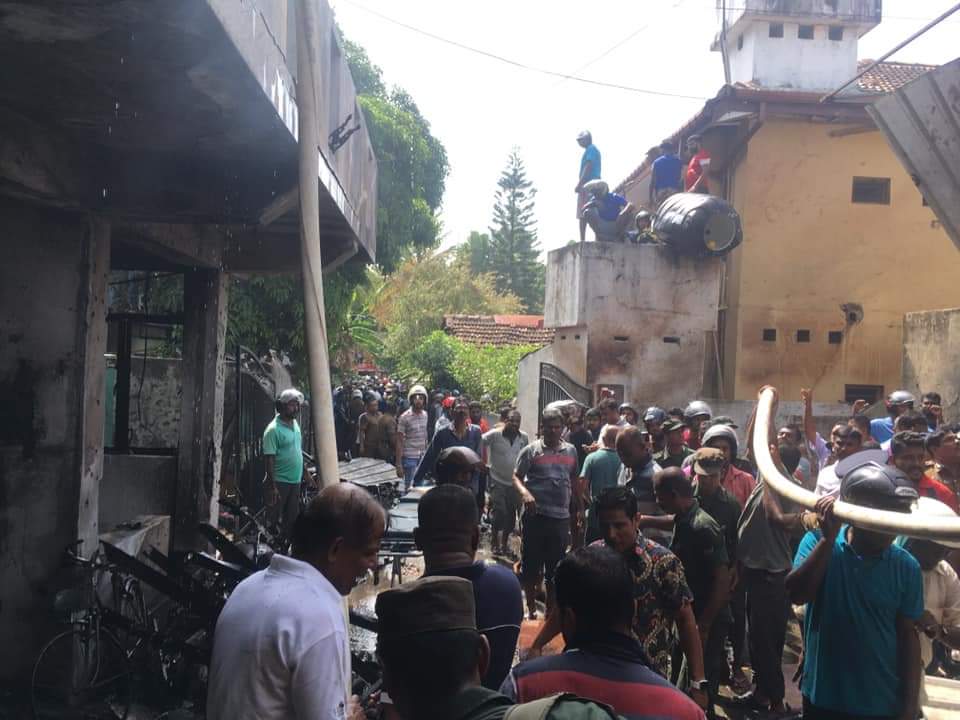
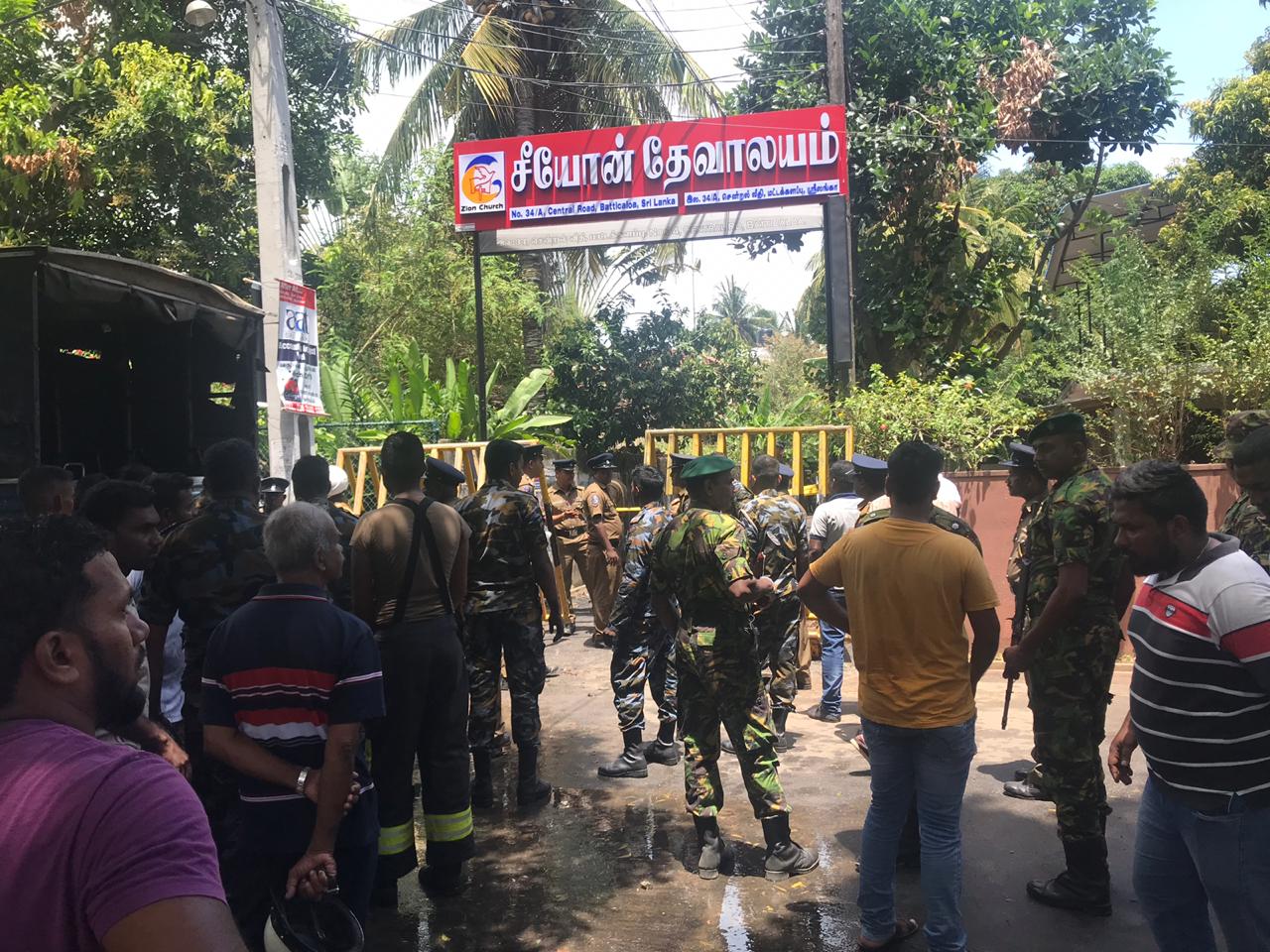
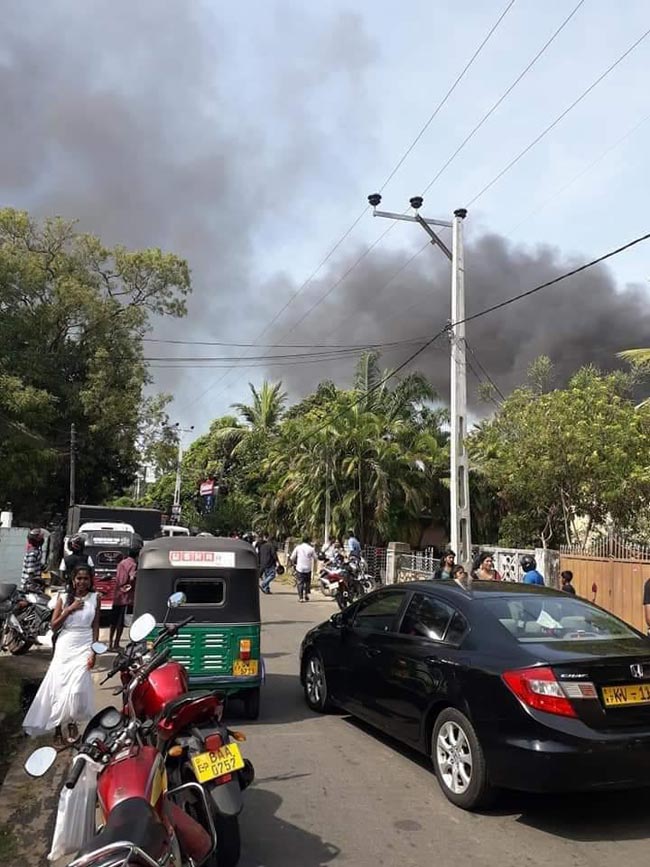
St Anthony’s Church, Colombo
